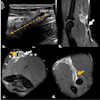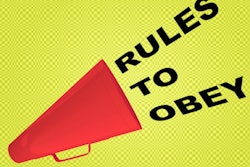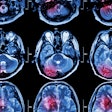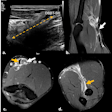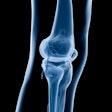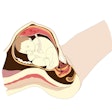
There are two versions of this article: the short one and the long one. Here is the short version: You can't keep out of trouble. Complaints will occur irrespective of skill, knowledge, caring, communication, and assiduousness. Complaints will occur regardless of harm caused, liability, or mitigating circumstances.
This short version isn't a great read, to be honest. But it is the truth, albeit an unpalatable one. At this point, feel free to move on, but the longer version below is worth a read.
I should probably point out some conflicts of interest. I've missed cancers, pulmonary emboli, fractures, and all manner of findings. I've also overcalled normal scans as abnormal. I've offered to eat my pants if I was wrong (and should have -- I was). I've made registrars cry (accidentally). I've offended colleagues (mainly accidentally). I've been sanctioned by the medical director. I've been involved in complaints and lawsuits. But I've not been in court or referred to the U.K. General Medical Council (GMC). Yet.
 Dr. Paul McCoubrie is a consultant radiologist at Southmead Hospital in Bristol, U.K.
Dr. Paul McCoubrie is a consultant radiologist at Southmead Hospital in Bristol, U.K.I know I'm not alone. It isn't that I'm reckless or negligent or have criminal intent. Well, not every day. As William Osler, the Canadian physician and one of the four founding professors of Johns Hopkins Hospital, wrote, "Errors in judgment must occur in the practice of an art which consists largely of balancing probabilities" -- and this pretty much describes what radiologists do. Thus, the longer you are in practice, the more errors you'll make. Inevitably, some errors will be clinically significant, which puts you at risk of trouble. The difficulty is there is no practical answer to the question of what separates a simple error from malpractice. In reality, it is probably 90% luck and 10% the skill of your defense lawyer.
The good news is that serious trouble is rare. Radiology claims account for only 2% of U.K. National Health Service (NHS) litigation, amounting to fewer than 3,000 claims since 1995. And being referred to the GMC is rarer still. I made a Freedom of Information Act request that revealed that roughly 24 radiologists are referred to the GMC annually, of which only an average of one a year has sanctions. So it isn't as bad as you think.
But the terror of a GMC investigation has a weighty cost to the individuals. Doctors referred have a 22 times increased risk of suicide, equating to 4% to 5% risk of death -- riskier than an abdominal aortic aneurysm repair. The recent trend of scapegoating is very worrying. Doctors have been charged with gross negligence manslaughter when there clearly were system errors. And, simultaneously, NHS whistleblowers still are systematically persecuted.
These conflicts have put the fear of God into many radiologists. It has led to the concept of "Schrödinger's Radiologist," who simultaneously is not working because of unsafe conditions but also is working because of the duty toward patient care.
Naturally, you'll want to avoid such serious trouble, and I present you with four simple ways to do this:
- Don't be a jerk. The one thing that unifies doctors getting into serious trouble (i.e., sacked or struck off) is their unreasonable behavior. GMC hearings are on the public record and frequently entail odious behavior over money. Just remember that you can only "eat one breakfast." Quality of life pretty much flattens out above an annual salary of 70,000 pounds (80,000 euros).
- Don't drop your colleagues in it. If you make a mistake, document everything with scrupulous honesty. Explain, admit, apologize. But don't criticize others. It is hard enough in modern healthcare without the threat of unwarranted knives in the back. It is easier to criticize a good radiologist than to be one, usually because of the destructive power of hindsight bias.
- Stay safe the easy way. We know radiologists make more mistakes when rushing, overworked, tired, in pain, stressed, interrupted, hungry, thirsty, and toward the end of the day. If you act on each one in turn, you can make your department more error-proof by design. Improved systems of work, better ergonomics, and more reasonable workload distribution are all achievable.
- Smile. Happier radiologists are more productive, healthier, and less prone to stress and burnout. Rude and grumpy radiologists are less happy and have an impact on others. Research shows that if you are rude to people, they lose time worrying, reduce the quality of and time at their work, and take it out on others. Put simply, rude radiologists are a recipe for poor care.
Put these four simple notions into practice, and not only will you sleep better at night but your colleagues will as well. And you never know, your patients might just benefit too.
Dr. Paul McCoubrie is a consultant radiologist at Southmead Hospital in Bristol, U.K.
The comments and observations expressed herein do not necessarily reflect the opinions of AuntMinnieEurope.com, nor should they be construed as an endorsement or admonishment of any particular vendor, analyst, industry consultant, or consulting group.


